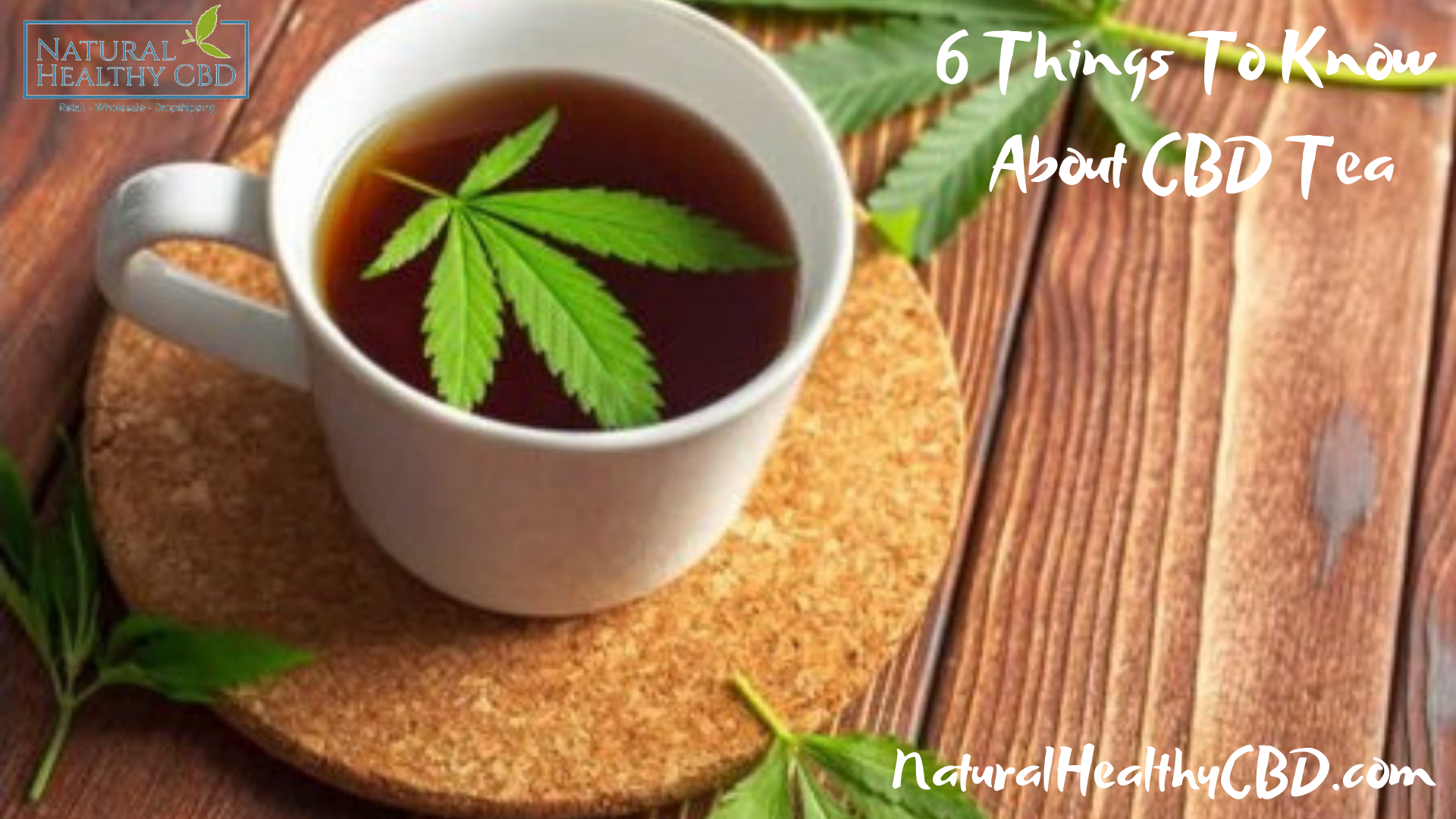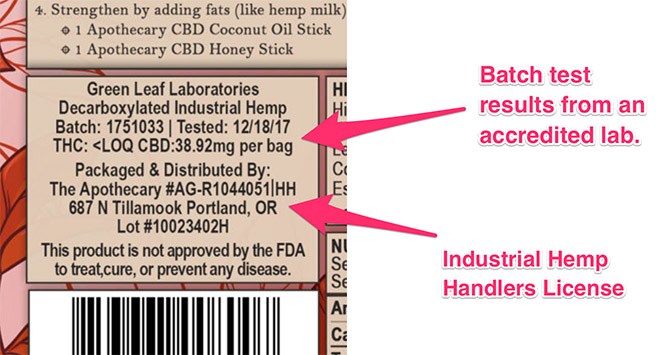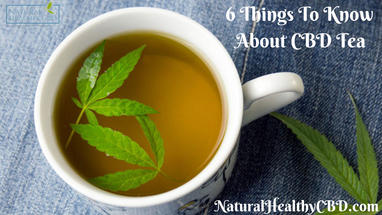Posted by The Bud Brothers on Dec 16th 2018
6 Things to Know about CBD Tea and CBD Products

CBD as an ingredient is rapidly growing in popularity. The non-psychoactive counterpart to THC, cannabidiol is being used more and more as a health supplement, ingredient in topicals, and in a variety of consumer products.
It’s also become increasingly available online. In fact, you can ship a number of CBD products to all 50 states (note: Indiana is the one state where that is a bit more grey, though it hasn’t been expressly labeled as illegal), just like The Brothers Apothecary CBD teas.
While this is great news for consumers, there can still be a lot of lingering questions: How do you know what “good” CBD is? Or how much CBD is even in the product your purchasing? What’s the right way to consume CBD? Is everyone allowed to sell CBD?
Unfortunately, not all CBD is as high quality, legal or safe as we’d like. But we’re here to help sort that out.
Below, we’ve outlined 6 things to know about CBD tea and CBD products in general. Next to each topic, you’ll also see a small preview of what area this is important to consider, ie. Legal (is it legal?), Quality (is it safe?) and Consumption (how should it be used?).
1. The Source (Legal)
The biggest thing to know when purchasing a CBD product is WHERE the CBD is sourced from. In most cases, CBD is used in isolate form. That is, a manufacturer will use one or more extraction methods to isolate the CBD, often resulting in an oil or isolate powder.
Why this is important is because for CBD to be legal, it needs to be sourced from industrial hemp, as defined by the US Farm Bill (section 7606 of the 2014 U.S. Farm Bill, to be exact). Essentially, industrial hemp is just cannabis with less than 0.3% THC, as measured by a certified or compliant lab.
If your CBD is not coming from a cannabis plant with less than 0.3% THC, you’re buying marijuana (at least according to the language of the Farm Bill). However unreasonable, that puts you in possession of a Schedule I drug.
2. The Handler (Legal)
Not everyone can sell CBD, but a lot of people do. That same Farm Bill mentioned above allows states to enact pilot programs for industrial hemp, including those related to CBD. This generally means that only those states with regulatory agencies set up to license what are often called “handlers” contain businesses that can legally sell CBD (at least domestically sourced CBD).
Similar to the above, buying CBD from an entity that isn’t licensed to handle the commodity can put you in a needlessly precarious situation. It’s the company’s obligation to get licensed to sell you their product, right?
(Note: The Brothers Apothecary is a licensed industrial hemp handler in the State of Oregon, and only sources Oregon-grown hemp from licensed growers — see below for an example!)
3. The Test Results (Quality)
Probably one of the biggest questions when shopping for CBD products is: how much CBD is actually in this? A lot of products don’t say. Some do. Of those that do, almost ALL do not show test results validating the claim.
This is huge red flag for us, and for a lot of shoppers and stores.
It’s pretty simple: a serious CBD product ought to have their product tested, and there should be test results from an accredited lab that are available to the public. These test results should be batch test results — not test results based on a single sample!
Here’s an example from one of The Brothers products:

4. Quality Control & CBD Food Safety (Quality)
Similar to concentration related test results, it’s really, really important to know how safe the CBD is your consuming.
For CBD in its natural form (hemp material or flower), look for test results or ask your supplier specifically if the material has been tested for mold, mildew or pesticides. (Already in Oregon, there have been recalls due to pesticide tainted crops hitting the shelves. Smoking or ingesting low-quality product can lead to unknown health effects.
A reputable CBD company will know that their product does not contain any potentially hazardous chemicals.
5. Lipids (Fat) and CBD (Consumption)
CBD, like THC, is hydrophobic (hates water) and lithophilic (loves fat). What this means is that a good CBD product will often be accompanied with a lipid in the ingredients. For The Brothers Apothecary, our CBD Teas include around 4 grams of fat in the form of powdered coconut milk — just enough to add fat to your brew without adding that coconut taste.
By adding a fat, be it cream, butter, coconut milk, or anything else with fats in your CBD tea, you increase the bioavailability of the cannabinoid in your system. This means your body is better able to absorb the CBD, which is the whole point, right?
6. Decarboxylation (Consumption)
CBD, also like THC, isn’t as simple as it sounds: it needs to be activated before consumption. Both exist naturally in an acidic form: THC-A and CBD-A. To activate the cannabinoids, they must go through a process called decarboxylation. This process removes a carboxyl group and releases carbon dioxide (CO2).
Sounds complicated, but all your really need to do is apply heat. This occurs during drying of the cannabis, but is accelerated by applying additional heat, like when you smoke or vaporize your cannabis.
Why is this important with CBD tea, especially? The temperature at which decarboxylation occurs is roughly 220°F. Water boils at 212°F… and no one wants scorched tea. (Plus, based on our research, the process of pouring boiling water actually cools it down to about 180° F in just a few seconds!).
That’s why when buying CBD tea, you want to look for products that use pre-decarboxylated CBD. In addition to activating the CBD ahead of time, making it instantly available in your brew, it also adds a nice nutty, cannabis flavor. Products that use purely raw hemp CBD frankly do not provide full CBD benefits.
Be Smart when Buying CBD Tea
Despite being relatively “new” in the marketplace, CBD is a promising ingredients that has shown incredible potential, whether it’s used for treating general anxiety, pain or discomfort, or used for more specific uses, like treating epileptic seizures.
That said, the rapid growth of CBD products also comes with a huge influx of questionable product quality, legality, and usability. As a CBD shopper, be smart when making that purchase!
Get not only the highest quality CBD Hemp Tea but tons of other high quality lab tested CBD Hemp products right here at Natural Healthy CBD!


